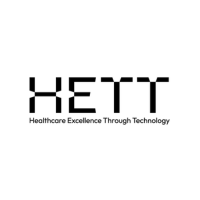In recent years, Artificial Intelligence (AI) has made significant technological strides and found its way into major industries and consumer products.
More recently, the use of AI in healthcare systems has been rising. Healthcare professionals are exploring its potential across all healthcare settings. However, AI is not a monolith, it's an umbrella term for multiple different functionalities and capabilities of the technology. These different ways in which AI is structured and used provide a world of different possibilities that can benefit health and care delivery.
AI has the potential to revolutionise the way healthcare professionals deliver care, but what about the opportunity in Primary Care? In this blog, we will explore the benefits and challenges of using AI in primary care.
Transforming Primary Care with AI
1. Enhancing Clinical Decision Support
One of the most significant advantages of incorporating AI into primary care is the ability to provide healthcare professionals with advanced clinical decision support. AI systems can quickly analyse patient data, including Electronic Patient Records (EPRs). AI can rapidly provide insights to clinicians to assist them in making more informed decisions.
By integrating evidence-based guidelines and a vast amount of medical knowledge, AI has the potential to assist in diagnosing illnesses and suggesting appropriate treatment plans, improving patient outcomes. An example of how AI is being used to enhance clinical decision-making is the LIBRA study (Leeds Investigation of Breast Screening AI), which uses the technology to improve detection of breast cancer.
2. Efficient Electronic Patient Record Management
AI technology streamlines the management of EPRs, making it easier for healthcare providers to access and update patient information. With AI-driven EPRs, primary care practitioners can save time on administrative tasks, enabling them to allocate more time to patient care. This results in a more efficient healthcare system overall.
3. Long-term Monitoring and Disease Management
Beyond the immediate diagnostic capabilities, AI technology is being harnessed for long-term patient monitoring and the management of chronic diseases. AI-powered digital health tools can monitor patients and collect data over the long term, helping manage chronic conditions such as diabetes or hypertension.
With this data, AI algorithms can provide real-time alerts and insights to both patients and healthcare providers, facilitating early intervention and personalised care plans. The result is a substantial reduction in hospitalisations, better overall patient wellbeing, and improved quality of life for those with chronic conditions.
4. Enhanced Patient Engagement and Empowerment
AI in primary care doesn't just benefit healthcare providers; it also empowers patients. Through AI-driven applications and tools, patients can access personalised health information and insights, enabling them to take a more active role in their own healthcare. These applications can provide real-time data on vital signs, medication reminders, and lifestyle recommendations, helping patients make informed decisions about their health.
Challenges in Implementing AI in Primary Care
1. Data Privacy and Security
The increased use of AI in primary care has raised concerns about data privacy and security. AI systems rely on vast amounts of sensitive patient data, and any breach or unauthorised access can have severe consequences. To mitigate these risks, healthcare providers must invest in robust data protection measures and ensure compliance with data privacy regulations.
2. Integration with Existing Systems
The integration of AI technology into existing healthcare systems can be a complex and resource-intensive process. Healthcare organisations may need to invest in new infrastructure and ensure seamless interoperability between AI solutions and their current systems. This often requires considerable financial investment and can lead to organisational disruptions. However, the potential benefits of AI adoption in terms of improved patient care and cost-efficiency make this investment worthwhile in the long run.
3. Training and Education
Healthcare professionals must be trained to use AI effectively. Implementing AI in primary care requires upskilling the workforce to understand and trust AI-driven recommendations and interventions. Continuous education and professional development programs are essential to keep healthcare professionals updated on the evolving landscape of AI technology and its applications in healthcare.
4. Ethical and Bias Concerns
AI systems are only as effective as the data they are trained on. If the training data contains biases or lacks diversity, AI can perpetuate healthcare disparities and systemic biases. Addressing these ethical and bias concerns in AI systems is critical to ensuring fair and equitable healthcare delivery. Ethical AI frameworks that prioritise transparency, fairness, and inclusivity is essential in preventing algorithmic bias in healthcare decision-making.
Should AI be used in primary care?
The use of AI technology in primary care offers immense benefits, from improved clinical decision support to long-term disease management. However, the implementation of AI in healthcare is not without its challenges, including data privacy, integration, training, and ethical concerns. As technology continues to advance, the healthcare industry must navigate these challenges to harness the full potential of AI for the betterment of patient care and the overall health system.
Want to find out more about AI in primary care? Visit HETT Show in September 2024!
On 24-25th September, thousands of healthcare professionals will join us at HETT Show in London where they will learn more about how AI is shaping the healthcare sector. Other critical topics will be discussed, such as digitally empowered patients, interoperability and digital maturity. Register for HETT Show to find out how you can improve patient outcomes through AI.
%20(1).png?width=500&height=58&name=HETT%20insights%20logo%20RGB-04%20(1)%20(1).png)


